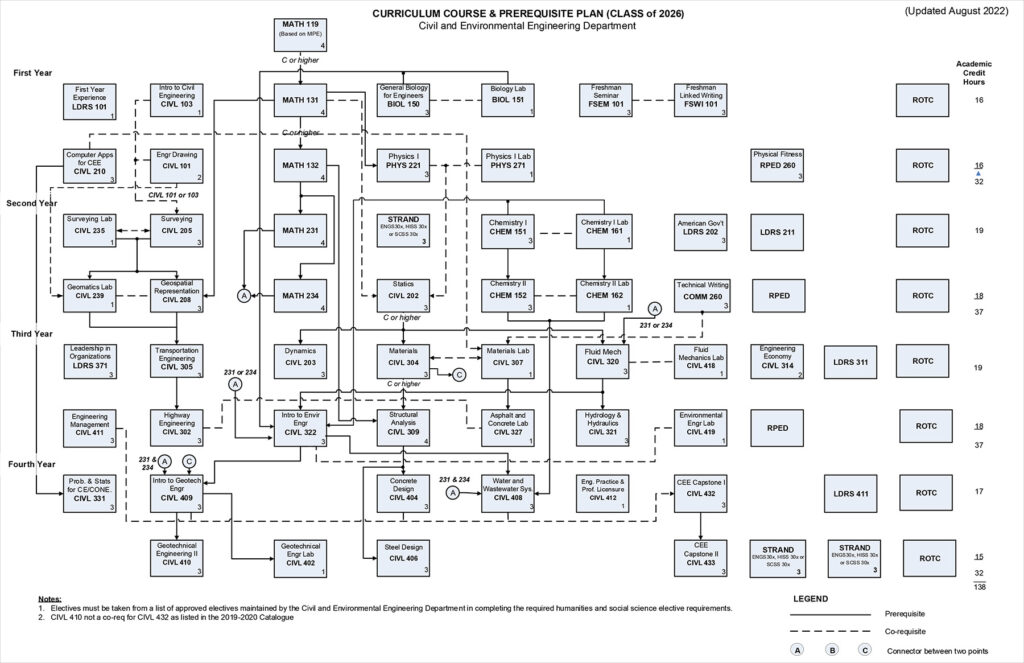Bachelor’s Degree in Civil Engineering
The civil engineering degree curriculum focuses on practical issues related to engineering design and professional practice. Students completing degrees in civil engineering follow a structured program that emphasizes both technical knowledge and real-world application. The civil engineering requirements include four discipline-specific concentrations with civil engineering classes that prepare students for challenging and diverse careers in the field.
Structural Engineering
Mechanics of materials, structural engineering systems, reinforced concrete design, and steel design.
Environmental Engineering
Air pollution and air quality control, hazardous and solid waste, hydraulics, hydrology, water resources, and water/wastewater treatment plant design.
Geotechnical Engineering
Soil mechanics, soil sampling and testing, shallow and deep foundations and retaining wall design.
Transportation Engineering
Airport design, maritime shipping facilities, public transit, traffic control devices, highway safety and roadway design.
Program of Study
The Civil and Environmental Engineering Department’s four-year program begins with coursework that builds a strong foundation in the basic arts and sciences, supporting the core civil engineering degree requirements. Limited specialization in engineering begins during the sophomore year. In the junior and senior years, students focus primarily on basic professional subjects as part of their advanced civil engineering classes. Throughout all four years, the program emphasizes orderly study, investigation, sound reasoning, problem-solving, and design rather than simply the acquisition of facts.
In addition to meeting all civil engineering degree requirements, students are prepared to think and act as professionals who are grounded in engineering science and technology while remaining aware of the social, economic, ethical, and ecological implications of their work. The civil engineering degree curriculum is accredited by ABET.
What can I do with a Civil Engineering Degree?
Engineering employment opportunities include serving as technical experts, designers, constructors, and managers of major civil engineering projects such as power plants, waterways, airports, schools, hospitals, wetlands preservation, environmental protection, and many other public works and commercial infrastructure projects.
View the Major Academic Plan (Map) for Civil Engineering or our Program Brochure.
Curriculum Course and Prerequisite plan:

